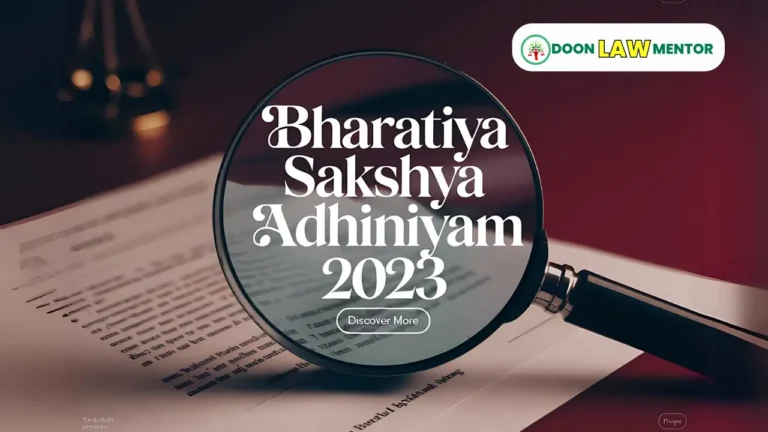Boost your performance with these Judiciary Prelims Speed Accuracy Tips to excel in 2025 exams. From time management to mock tests, these 7 proven strategies will enhance your speed and accuracy. Master the Judiciary Prelims Speed Accuracy Tips to tackle objective questions effectively. This blog provides actionable advice for Judiciary, APO, and JLO aspirants preparing for prelims success.
Table of Contents
Introduction
The Judiciary Prelims exam is a critical step for aspirants aiming to become Civil Judges, APOs, or JLOs. With objective questions testing legal knowledge, general awareness, and aptitude, speed and accuracy are key to success. The Judiciary Prelims Speed Accuracy Tips provided in this blog will help you optimize your performance in 2025 exams.
These 7 proven strategies focus on time management, practice, and smart techniques. Whether you’re preparing for the Rajasthan, Madhya Pradesh, or Delhi Judiciary exams, the Judiciary Prelims Speed Accuracy Tips are essential for maximizing your score. For Judiciary, APO, and JLO aspirants, mastering the Judiciary Prelims Speed Accuracy Tips can make the difference between clearing the prelims and falling short. Let’s dive into these actionable tips to help you succeed.
Why Speed and Accuracy Matter in Judiciary Prelims
Judiciary Prelims exams typically consist of 100-150 multiple-choice questions (MCQs) to be answered in 2 hours. This means you have roughly 1-1.5 minutes per question, making speed crucial. Accuracy is equally important due to negative marking in most exams (e.g., 0.25 marks deducted per wrong answer in Rajasthan Judiciary).
A balance of speed and accuracy ensures you attempt maximum questions correctly. The Judiciary Prelims Speed Accuracy Tips will help you achieve this balance. They are designed to improve your efficiency while minimizing errors. Let’s explore the 7 Judiciary Prelims Speed Accuracy Tips to boost your preparation for 2025.
Tip 1: Master Time Management with a Strategic Approach
Time management is the backbone of Judiciary Prelims success. Allocate specific time slots for each section—legal, general knowledge, and aptitude. For example, in the Rajasthan Judiciary Prelims, legal questions (70-80 marks) may require more time than general knowledge (20-30 marks).
- Set Time Limits: Divide your 2-hour exam into segments. Spend 1 hour on legal questions, 30 minutes on general knowledge, and 30 minutes on aptitude.
- Prioritize Easy Questions: Start with questions you’re confident about to secure quick marks. This builds momentum and saves time for tougher ones.
- Use the 3-Round Method: In the first round, answer easy questions. In the second, tackle moderately difficult ones. In the third, attempt the remaining questions with educated guesses.
- The Judiciary Prelims Speed Accuracy Tips emphasize practicing this method during mock tests to perfect your timing.
Tip 2: Build a Strong Foundation in Core Legal Subjects
Legal knowledge forms the bulk of Judiciary Prelims (e.g., 70% in Rajasthan, 80% in Madhya Pradesh). A strong grasp of core subjects like the Constitution of India, Bharatiya Nyaya Snahita, Code of Civil Procedure (CPC), and Bharatiya Sakshya Adhiniyam is essential. The Judiciary Prelims Speed Accuracy Tips stress focusing on high-weightage topics.
- Focus on Key Areas: Prioritize topics like Fundamental Rights, Criminal Procedure Code (CrPC), and Contract Act, which are frequently tested.
- Memorize Bare Acts: Learn key sections and provisions (e.g., Section 300 IPC for murder, Article 21 for right to life). Use mnemonics to recall them quickly.
- Revise Regularly: Create concise notes for quick revision. For example, list landmark cases under each Article of the Constitution (e.g., Maneka Gandhi v. Union of India for Article 21).
- By mastering these subjects, the Judiciary Prelims Speed Accuracy Tips ensure you answer legal questions faster and more accurately.
Tip 3: Practice with Mock Tests and Previous Year Papers
Mock tests are the best way to simulate exam conditions and improve both speed and accuracy. The Judiciary Prelims Speed Accuracy Tips recommend regular practice to identify strengths and weaknesses.
- Take Full-Length Mocks: Attempt at least 2-3 mock tests per week in a timed environment. Platforms like LawSikho and Doon Law Mentor offer state-specific Judiciary mock tests.
- Analyze Your Performance: After each test, review your mistakes. Identify patterns (e.g., errors in legal reasoning or general knowledge) and work on those areas.
- Solve Previous Papers: Analyze past 5-10 years’ question papers for Rajasthan, Madhya Pradesh, or Delhi Judiciary. This helps you understand question trends and difficulty levels.
- The Judiciary Prelims Speed Accuracy Tips highlight that consistent practice reduces exam anxiety and improves your ability to answer quickly and correctly.
Tip 4: Enhance General Knowledge and Current Affairs
General knowledge (GK) and current affairs are integral to Judiciary Prelims, often carrying 20-30 marks. The Judiciary Prelims Speed Accuracy Tips suggest a structured approach to stay updated and answer GK questions efficiently.
- Read Daily Newspapers: Follow The Hindu or Indian Express for legal and national news. Focus on landmark judgments, new laws, and government schemes (e.g., Ayushman Bharat).
- Use Monthly Compilations: Refer to monthly current affairs magazines like Pratiyogita Darpan or online resources like Vision IAS for concise updates.
- Focus on State-Specific GK: For state Judiciary exams, learn local laws and history (e.g., Rajasthan’s Land Revenue Act or Madhya Pradesh’s Panchayat Raj Act).
- Practice MCQs: Solve 50-100 GK MCQs daily to improve speed. Apps like Doon Law Mentor, Testbook or Adda247 offer Judiciary-specific GK quizzes.
- The Judiciary Prelims Speed Accuracy Tips ensure you can quickly recall facts and avoid guesswork in the GK section.
Tip 5: Develop Smart Guessing Techniques to Maximize Attempts
With negative marking, blind guessing can lower your score. The Judiciary Prelims Speed Accuracy Tips recommend smart guessing techniques to increase your attempts while minimizing errors.
- Elimination Method: Rule out obviously incorrect options first. For example, if a question asks about Article 21, eliminate options unrelated to fundamental rights.
- Look for Clues: Use keywords in the question to narrow down choices. For instance, a question on “bail” likely relates to CrPC sections like Section 437 or Section 439.
- Avoid Overthinking: If you’re stuck between two options, trust your first instinct. Overthinking often leads to errors, especially under time pressure.
- Skip Difficult Questions: If a question takes too long, mark it for review and move on. Use the saved time for easier questions.
- The Judiciary Prelims Speed Accuracy Tips help you make educated guesses, boosting your overall score without risking too many negative marks.
Tip 6: Improve Reading Speed and Comprehension for Legal Questions
Judiciary Prelims often include lengthy legal questions with case scenarios or provisions. The Judiciary Prelims Speed Accuracy Tips focus on improving your reading speed and comprehension to tackle these efficiently.
- Practice Speed Reading: Read legal texts, Bare Acts, and judgments daily to increase your reading speed. Focus on skimming for key information like dates, sections, or parties involved.
- Understand Question Patterns: Familiarize yourself with common question types (e.g., “Which section applies?” or “What is the exception?”). This helps you identify relevant information quickly.
- Highlight Keywords: While practicing, underline keywords in questions (e.g., “bail”, “murder”, “contract”). This trains your brain to spot important details faster during the exam.
- Use Shortcuts for Provisions: Learn abbreviations or mnemonics for key sections (e.g., Section 299-300 IPC for culpable homicide and murder). This saves time when recalling provisions.
- The Judiciary Prelims Speed Accuracy Tips ensure you can read and comprehend questions faster, leaving more time for accurate answers.
Tip 7: Stay Calm and Focused During the Exam
Exam pressure can lead to mistakes, reducing both speed and accuracy. The Judiciary Prelims Speed Accuracy Tips emphasize maintaining composure to perform at your best.
- Practice Mindfulness: Use techniques like deep breathing or meditation to stay calm before and during the exam. This helps reduce anxiety and improves focus.
- Avoid Overthinking: If you’re unsure about a question, don’t dwell on it. Mark it for review and move on to maintain your pace.
- Take Short Breaks: During mock tests, practice taking 10-second mental breaks every 30 minutes. This keeps your mind fresh and prevents fatigue.
- Stick to Your Strategy: Follow the time management plan you’ve practiced. Don’t panic if you’re behind schedule—focus on maximizing your score with the remaining questions.
- The Judiciary Prelims Speed Accuracy Tips help you stay composed, ensuring you can think clearly and answer accurately under pressure.
Critical Analysis: Balancing Speed, Accuracy, and Exam Pressure
The Judiciary Prelims Speed Accuracy Tips provide a comprehensive approach to tackling the prelims, but they also highlight broader challenges in exam preparation.
Strengths
- Structured Preparation: The Judiciary Prelims Speed Accuracy Tips offer a clear roadmap. They help aspirants manage time, prioritize questions, and practice effectively.
- Focus on Practice: Emphasizing mock tests and previous papers ensures aspirants are exam-ready. This aligns with expert advice from platforms like LawSikho and Doon Law Mentor.
- Practical Techniques: Smart guessing and speed reading techniques are actionable. They address common challenges like time constraints and lengthy questions.
- Holistic Approach: The Judiciary Prelims Speed Accuracy Tips cover both mental and technical preparation. Staying calm and focused is as crucial as legal knowledge.
Challenges and Concerns
- Time Constraints: Even with the Judiciary Prelims Speed Accuracy Tips, 1-1.5 minutes per question can be challenging. Aspirants with slower reading speeds may struggle, as noted in X posts.
- Negative Marking Pressure: The fear of negative marking (e.g., 0.25 marks per wrong answer) can lead to overcaution. This might reduce attempts, lowering overall scores.
- Subjective Difficulty: Legal questions often involve complex scenarios. Without sufficient practice, aspirants may misinterpret questions, reducing accuracy.
- Burnout Risk: Intense preparation, as suggested by the Judiciary Prelims Speed Accuracy Tips, can lead to burnout. Aspirants need to balance study with rest to maintain focus.
Critical Perspective
The Judiciary Prelims Speed Accuracy Tips provide a robust framework for success, addressing key challenges like time management and negative marking. They align with expert strategies, such as those recommended by Doon Law Mentor, which emphasize mock tests and time-bound practice. However, the tips may not fully address individual differences, such as varying reading speeds or stress levels, which can impact performance, as highlighted in X posts.
While smart guessing helps, it carries risks due to negative marking, requiring aspirants to balance attempts with accuracy. A more tailored approach, such as personalized study plans or stress management workshops, could complement these tips. Overall, the Judiciary Prelims Speed Accuracy Tips are a valuable starting point, but aspirants must adapt them to their strengths and weaknesses to maximize their prelims score in 2025.
Relevance for Judiciary, APO, and JLO Aspirants
The Judiciary Prelims Speed Accuracy Tips are essential for Judiciary, APO, and JLO aspirants preparing for 2025 exams:
- Prelims: Expect questions on Constitution of India, IPC, CrPC, CPC, Evidence Act, and current affairs. The tips help you answer quickly and accurately.
- Mains: Time management skills developed through these tips can aid in mains preparation. For example, speed reading helps with essay writing and judgment analysis.
- Interviews: Discuss how you improved your prelims performance using strategies like the Judiciary Prelims Speed Accuracy Tips. Highlight your preparation discipline and problem-solving skills.
Conclusion
The Judiciary Prelims Speed Accuracy Tips offer a comprehensive strategy to excel in the 2025 Judiciary Prelims exams. From mastering time management to practicing mock tests, these 7 tips address the core challenges of speed and accuracy. The Judiciary Prelims Speed Accuracy Tips ensure you can tackle objective questions efficiently while minimizing errors.
Whether you’re preparing for Rajasthan, Madhya Pradesh, or Delhi Judiciary, these tips are your key to success. For Judiciary, APO, and JLO aspirants, adopting the Judiciary Prelims Speed Accuracy Tips can significantly boost your prelims score. Start implementing these strategies today to achieve your judicial career goals in 2025.
Call-to-Action
Master the Judiciary Prelims Speed Accuracy Tips for your 2025 exams! Join Doon Law Mentor’s Courses for expert guidance. Follow @doonlawmentor on Instagram for daily legal updates!
FAQs
- What are the Judiciary Prelims Speed Accuracy Tips for 2025 exams?
The tips include time management, mastering legal subjects, practicing mock tests, enhancing GK, smart guessing, improving reading speed, and staying calm during the exam. - How can time management help in Judiciary Prelims, as per Judiciary Prelims Speed Accuracy Tips?
Allocate time for each section (e.g., 1 hour for legal questions) and use the 3-round method to prioritize easy questions, ensuring maximum attempts. - Why is practicing mock tests important in Judiciary Prelims Speed Accuracy Tips?
Mock tests simulate exam conditions, helping you improve speed, identify weaknesses, and reduce errors through consistent practice. - How can I improve my general knowledge for Judiciary Prelims using Judiciary Prelims Speed Accuracy Tips?
Read newspapers like The Hindu, use monthly compilations, focus on state-specific GK, and practice daily MCQs to recall facts quickly. - What is the smart guessing technique in Judiciary Prelims Speed Accuracy Tips?
Use the elimination method to rule out incorrect options, look for clues in the question, and avoid overthinking to make educated guesses. - How does improving reading speed help in Judiciary Prelims, as per Judiciary Prelims Speed Accuracy Tips?
It allows you to quickly comprehend lengthy legal questions, saving time for accurate answers and increasing overall attempts. - Why is staying calm important in Judiciary Prelims Speed Accuracy Tips?
Staying calm reduces exam anxiety, improves focus, and prevents mistakes, ensuring you answer questions accurately under pressure. - Which legal subjects should I focus on for Judiciary Prelims, per Judiciary Prelims Speed Accuracy Tips?
Focus on the Constitution, IPC, CrPC, CPC, and Evidence Act, especially high-weightage topics like Fundamental Rights and bail provisions. - How can I use previous year papers for Judiciary Prelims, as per Judiciary Prelims Speed Accuracy Tips?
Solve past 5-10 years’ papers to understand question trends, difficulty levels, and frequently tested topics, improving both speed and accuracy. - Why are Judiciary Prelims Speed Accuracy Tips important for aspirants?
They help balance speed and accuracy, crucial for clearing prelims with negative marking, ensuring maximum correct attempts in limited time.
#JudiciaryPrelimsSpeedAccuracyTips, #JudiciaryExam2025, #SpeedAccuracyTips, #JudiciaryAspirants #doonlawmentor










